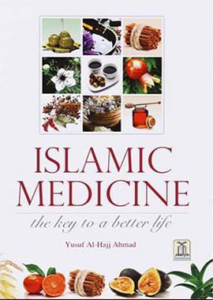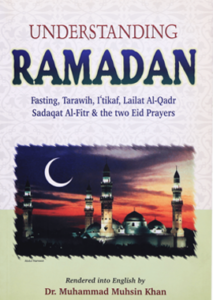Ramadan, the holiest month in the Islamic calendar, is not only a time of spiritual reflection and devotion but also holds significant health benefits that extend beyond its religious significance. From promoting physical well-being to fostering mental resilience, observing Ramadan can positively impact various aspects of one’s health.
In this comprehensive blog by Darussalam, we delve into the health benefits and importance of Ramadan, shedding light on its physiological and psychological effects.
Understanding Ramadan:
Ramadan is the ninth month of the Islamic lunar calendar, during which Muslims worldwide fast from dawn till sunset. This fasting entails abstaining from food, drink, smoking, and marital relations. The fast is broken daily with a meal called iftar, typically beginning with dates and water, followed by a balanced meal.
Health Benefits of Ramadan:
Fasting during Ramadan not only holds religious significance but also offers several health benefits backed by scientific research.. While the primary purpose of fasting is spiritual, the physiological effects on the body can lead to improved well-being.
1. Promotes Detoxification: Fasting during Ramadan allows the body to detoxify by eliminating toxins accumulated over time. With the absence of constant food intake, the body utilizes stored fat for energy, facilitating the removal of harmful substances.
2. Weight Management: The restricted eating window in Ramadan can aid in weight management by promoting calorie deficit and regulating metabolism. However, it’s essential to maintain a balanced diet during non-fasting hours to reap these benefits sustainably.
3. Improves Insulin Sensitivity: Fasting during Ramadan has been shown to improve insulin sensitivity, which is beneficial for individuals at risk of or managing diabetes. The intermittent fasting pattern helps regulate blood sugar levels, reducing the risk of insulin resistance.
4. Enhances Mental Clarity: Contrary to common misconceptions, fasting can sharpen mental clarity and focus. With the absence of constant digestion, the brain receives a steady supply of nutrients, enhancing cognitive function and concentration.
5. Promotes Spiritual Well-being: Beyond its physical benefits, Ramadan fosters spiritual well-being by promoting self-discipline, empathy, and gratitude. The act of fasting encourages reflection, empathy towards the less fortunate, and a deeper connection with one’s faith.
Learn More: Essential Do’s and Don’ts Guide During Ramadan 2024
The Importance of Ramadan:
Ramadan holds profound significance in the Islamic faith, marking a period of spiritual reflection, increased devotion, and self-discipline for millions of Muslims worldwide. It is the ninth month of the Islamic lunar calendar and is observed by fasting from dawn until sunset.
1. Spiritual Renewal: Ramadan serves as a period of spiritual renewal and self-purification for Muslims. Through fasting, prayer, and increased acts of charity, individuals seek to strengthen their relationship with Allah and attain spiritual growth.
2. Community Bonding: Ramadan fosters a sense of community and solidarity among Muslims worldwide. From shared iftar meals to collective worship, the month brings people together, transcending boundaries of ethnicity, culture, and nationality.
3. Cultivates Empathy: Experiencing hunger and thirst firsthand fosters empathy towards the less fortunate and reinforces the importance of charity and compassion. Ramadan serves as a reminder of the blessings many take for granted and inspires acts of kindness and generosity.
4. Reaffirms Discipline: Observing fasting during Ramadan instills discipline and self-control in individuals. By abstaining from worldly desires and temptations, Muslims cultivate a heightened sense of discipline that extends beyond the month-long observance.
5. Opportunity for Self-Reflection: Ramadan provides an opportunity for introspection and self-reflection, allowing individuals to assess their actions, behaviors, and spiritual goals. Through increased prayer and recitation of the Quran, Muslims seek guidance and repentance, striving for self-improvement.
Read More: Benefits of Reading Quran in Ramadan
Conclusion:
Ramadan encompasses a holistic approach to health, intertwining physical well-being with spiritual nourishment. Beyond its religious significance, the month offers a myriad of health benefits, from detoxification and weight management to enhanced mental clarity and insulin sensitivity. Embracing the spirit of Ramadan involves not only abstaining from food and drink but also cultivating empathy, discipline, and self-reflection. By understanding the health benefits and importance of Ramadan, individuals can approach the month with a renewed sense of purpose and appreciation for its profound impact on both body and soul.
FAQs About Health Benefits and Importance of Ramadan:
Is fasting during Ramadan safe for everyone?
Fasting during Ramadan is generally safe for healthy adults. However, individuals with certain medical conditions, such as diabetes or pregnancy, should consult a healthcare professional before fasting.
How can I stay hydrated while fasting?
It’s essential to hydrate adequately during non-fasting hours by drinking plenty of water and consuming hydrating foods such as fruits and vegetables.
Can children participate in fasting during Ramadan?
While children are not obligated to fast, many begin practicing fasting for shorter durations as they approach adolescence, gradually building up to full-day fasts.
What if I’m traveling during Ramadan?
Travelers are exempt from fasting during Ramadan but are encouraged to make up for missed fasts at a later date or provide meals to the needy as a form of compensation.
How can I maintain energy levels during fasting?
Consuming complex carbohydrates, and protein-rich foods, and staying hydrated during non-fasting hours can help maintain energy levels throughout the day.













